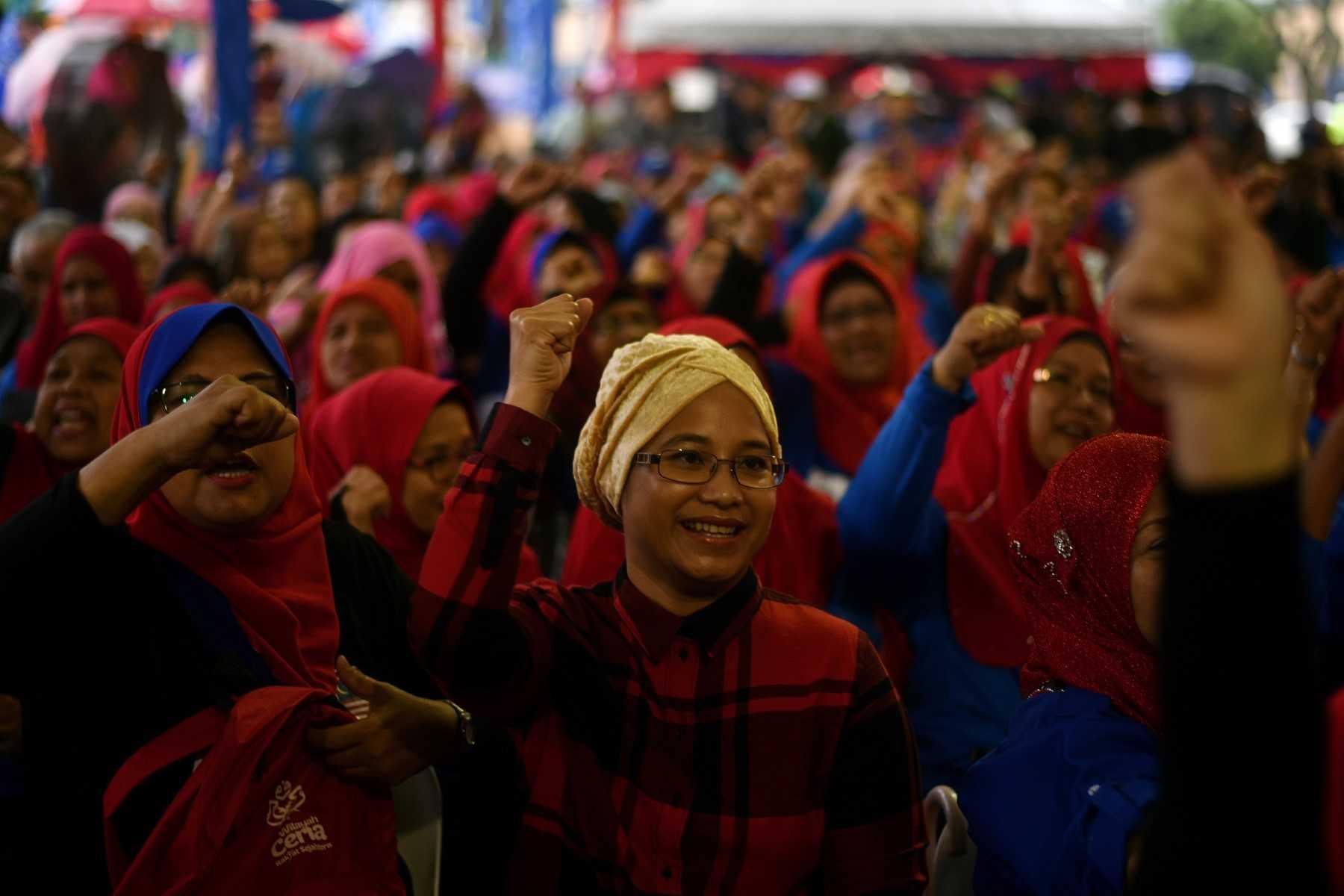The role of celebrities in GE campaigns
But while artists have a significant part to play, their own ventures into the political arena are not always a success.
Just In
Each time a general election rolls around, an unlikely group of people experience an increase in popularity.
While the election spotlight is normally hogged by politicians and their ilk, artists, too, have a role to play.
Singers, actors and filmmakers alike praise the merits and struggles of their chosen leaders on their respective stages.
For some, their political views are as much of an attraction as their creative talent.
And backed by millions of followers on social media, the influence of this group is not to be lightly dismissed.
Personalities such as Rosyam Nor, Wan Aishah Wan Ariffin, Zainal Abidin, Norman KRU, Khir Rahman, Zizie Ezette and Anne Ngasri, for example, had actively campaigned for political parties at the 2018 general election.
Anis Anwar Suhaimi, chief researcher at O2 Research Malaysia, said celebrities have a role to play in politics even if they themselves are not representatives of the people.
The influence of these groups depends on their reputation, popularity and educational background.
Speaking to MalaysiaNow, he said there are three general ways in which celebrities can contribute in terms of political campaigns.
Firstly, they can advocate current issues that are of public interest, such as the cost of living or the governance of leaders.
"Fans or even the general public will appreciate the concern of celebrities who use their popularity to convey the voice of the people," he said.
Celebrities can also channel support to the leaders or parties whom they feel deserve to be highlighted, for instance by backing the manifestos or plans put forth.
Thirdly, they can spread their ideology through their creative works.
Anis, who is conducting research on political behaviour and minority politics in addition to ethnic studies, cited the recent blockbuster film, Mat Kilau, as an example of how a value system could be conveyed to the audience.
"In this context, celebrities play a big role as the enforcers of the values or ideologies held by their followers because of the credibility they have," he said.
"These values or ideologies, whether directly or indirectly, will influence the support for political parties, where fans will follow the party promoted by the celebrity if the values are in line with theirs."
Public reception
A singer, TV host and actor who asked to be known as "S" said participating in political campaigns could be fun.
S, who has actively followed the campaign of a party in the peninsula since GE12, said money was one of the factors behind his enthusiasm.
He is well paid to follow the party's programmes throughout the campaign period, and receives food and accommodation free of charge as well.
"Money aside, I also campaign because I'm close with that particular leader," he added.
"His daughter and I have been friends since our school days."
S said election campaigns also gave him the opportunity to meet fans from outside of urban city areas.
"They are really excited to see artists come to their villages," he added. "It makes me feel touched."
Nevertheless, S also finds it hard to win the trust of fans when it comes to political issues, as they attend programme events for the entertainment value and not as prospective voters.
"And in states like Kelantan, they don't care at all if artists join the campaign," he said.
"It's like they're not interested in entertainment. That was when I first began to campaign, maybe 10 to 12 years ago."
For this reason, S said, many of his celebrity friends had failed in their attempts to begin a political career.
Anis agreed that it was difficult for celebrities to directly promote political parties as their role in the public eye is one of entertainment, not leadership.
Nevertheless, he said, there were a few who had succeeded in climbing the ladder in the political arena, including Dira Abu Zahar, the daughter of a former Melaka chief minister who went from being an actor to the assemblyman for Rim.
"But this is rare because the people realise the difference between creative talent and the ability to take on leadership roles in the country," he said.
Subscribe to our newsletter
To be updated with all the latest news and analyses daily.
